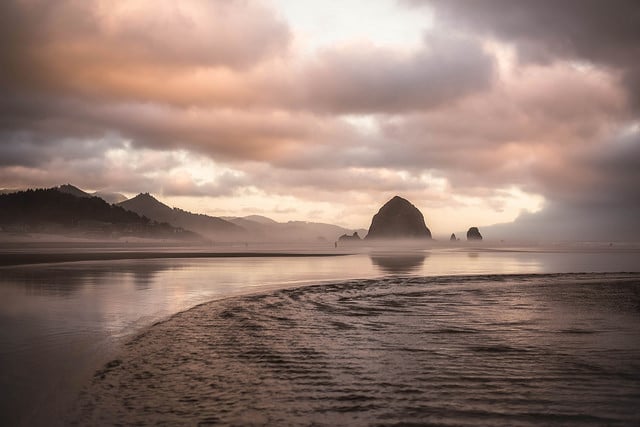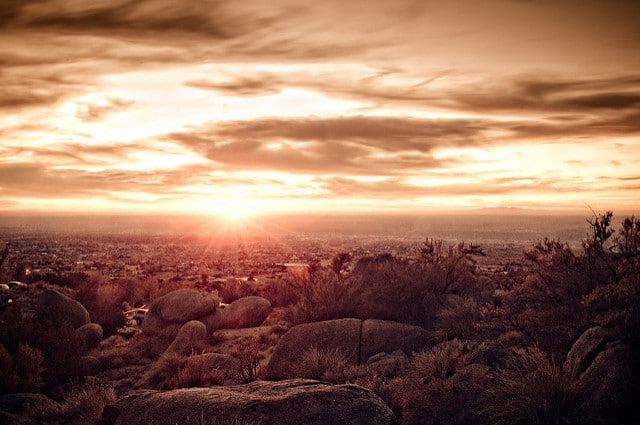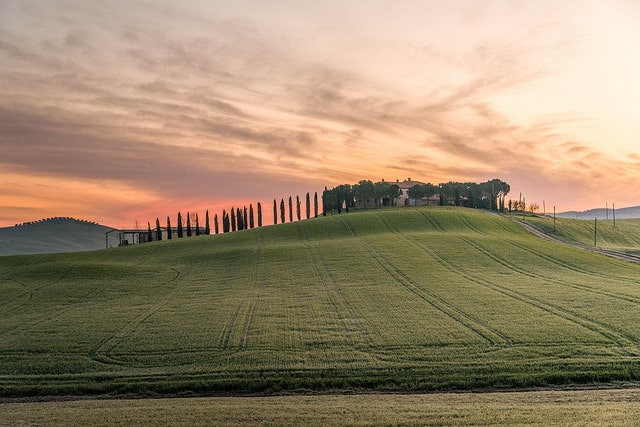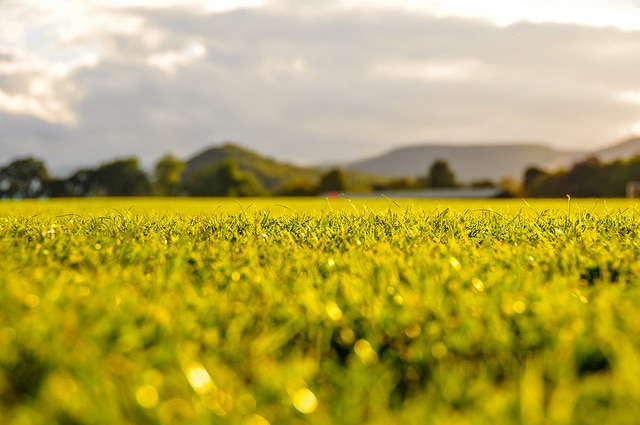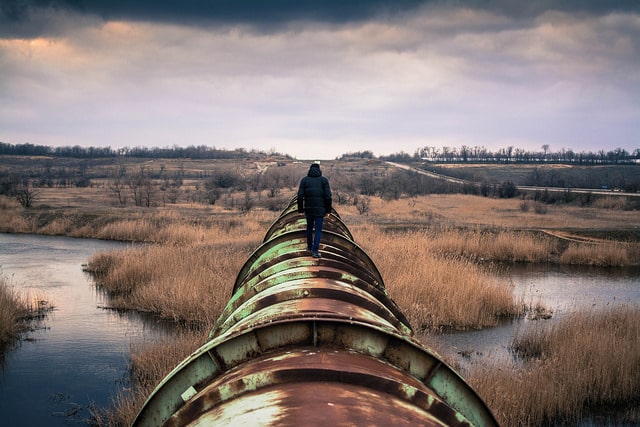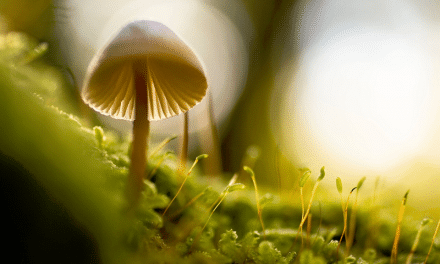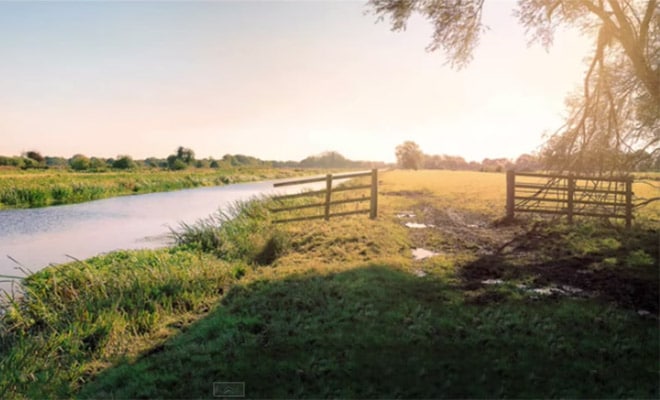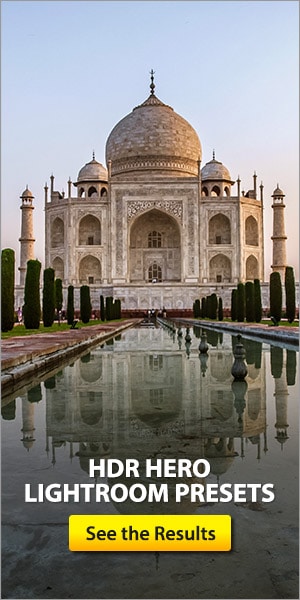We’ve all been there –trying to capture a landscape photo that’s tack sharp –only to be disappointed when certain key areas in the image are hopelessly out of focus.
When it comes to landscape photography, finding the right spot to focus can be a challenge. Since there isn’t one particular rule that you should follow, every time –it can be difficult to know where you should focus, and how. The fact is that the ideal focal point will vary –depending on your lens, aperture, and what you have in mind for the end result.
If you’re looking to take your landscape photography up a notch, knowing where, and how, to focus will help you to capture those images that you’re looking for. Here are a few tips that will get you off to a great start.
→ Related reading: 11 Steps to Tack-Sharp Landscape Photos
Understanding Focus
Before you can really know where to direct your focus, you must understand how focus works. Depth of field increases with higher f-stops, and if you’re attempting to capture a landscape image that’s entirely clear and in focus from front to back, then it stands to follow that you’ll want to make sure that you use a smaller aperture to keep everything in focus.
But which part of the composition should you focus on to keep everything in the image sharp?
While some photographers assume that focusing on infinity, or that distant point in the horizon is the best solution, this isn’t usually the case. Focusing to infinity will cause the distance to be clear, but unfortunately, the rest of the image will be out of focus.
Hyperfocal Distance
The good news is that there is a specific point in the image that you can focus on for greatest depth of field. This point is known as the hyperfocal point, and is usually found about 1/3 up from the bottom of a frame in a composition.
By using hyperfocal distance the foreground and background remain in focus. More specifically, focusing on this point ensures that everything from half of this distance, all the way on out to infinity will remain sharp. While calculating the hyperfocal distance in a scene can be found using a mathematical equation, or by referring to a hyperfocal distance chart, you can also use a hyperfocal distance calculator for a fast and easy way to find this point in your images.
Keep in mind though, that not all landscape images require, or even benefit from focusing on the hyperfocal distance. Focusing on this point is ideal when you’re hoping to maintain maximum depth of field, and focusing on objects that are both close and far away. If you are shooting distant landscapes without any elements in the foreground, or isolating a specific part of the image, then you can forego the use of hyperfocal distance.
If in doubt, you can always focus to infinity, and then draw the focus back a bit to focus on a point that’s a bit closer than infinity for a wider depth of field in your landscape images.
→ Related reading: What is Hyperfocal Distance and How Can It Sharpen Your Landscape Photos?
Choose Your Aperture
In addition to the point of focus in your images, depth of field will also impact which part of the image is in focus. Much of your focus will be influenced by the aperture that you use, and the depth of field that you’re hoping to achieve.
- Using a Smaller Aperture
For most landscape images, you’ll most likely be trying to get most of the image in focus. In these cases, you’ll want to use a smaller aperture (larger number) for clear, in-focus images. A smaller aperture allows for a greater depth of field, and allows you to include more in your landscape images.
- Using a Larger Aperture
Using a larger aperture will blur the background, or foreground, of your images, allowing you to draw more of the focus onto a specific area. In landscape photography, you can use this to your advantage by using a wide aperture to cause the objects in the foreground, such as grass, to become blurred.
→ Related reading: How to Create Beautiful Bokeh in Nature Photography
Find Your Focal Length
While it may sound obvious, it’s important to keep in mind that your focal length will also impact your optimal point of focus in a composition. Adjusting your focal length will affect your depth of field, and will influence where you should focus. This is why using wide angle lens, which has a short focal length, will give you a greater depth of field than using a telephoto.
Find a Strong Focal Point
Finally, if you are struggling with finding a place to focus in a landscape image, pick out a strong focal point and let that help you compose your image. Great focal points can be found in everywhere and you may be surprised at just how much a strong focal point can drastically improve your images.
Another technique that you can use for focusing in landscape compositions is focusing and recomposing. This involves shooting in one-shot mode on your camera and finding one part of the area that you want to focus on. When you find the ideal focal point, press the shutter halfway down, recompose your shot, and then release the shutter. This is an ideal technique if you have one area in the scene that you want to focus on.
While it can seem tricky, getting your focus right, with a bit of practice will become easier over time. Try not to feel overwhelmed with charts and calculations, while these tools can be helpful, many photographers rely on trial and error to become familiar with the best area to focus on for maximum depth of field. And of course, when in doubt, find an area that you want to focus on, then make sure that subject is sharp and clear.
Do you have any tips for finding focal points in an image? Share them with us in the comments!
License links: CC BY 2.0, CC BY-SA 2.0

